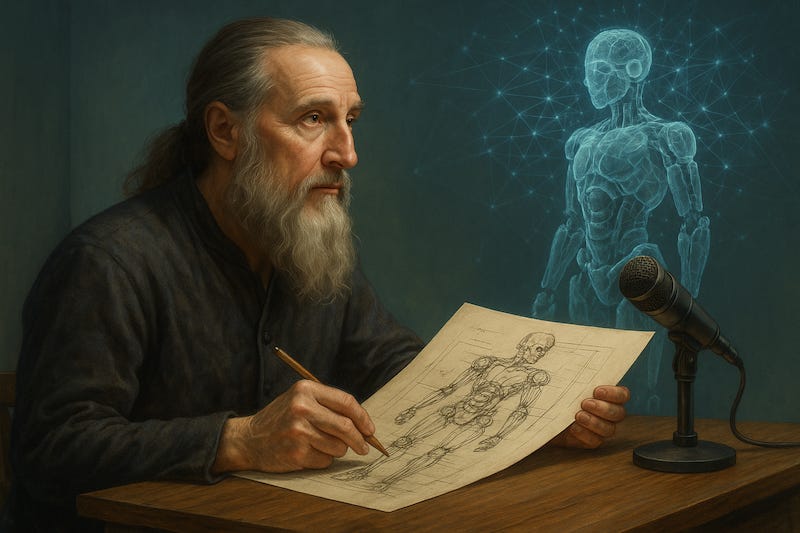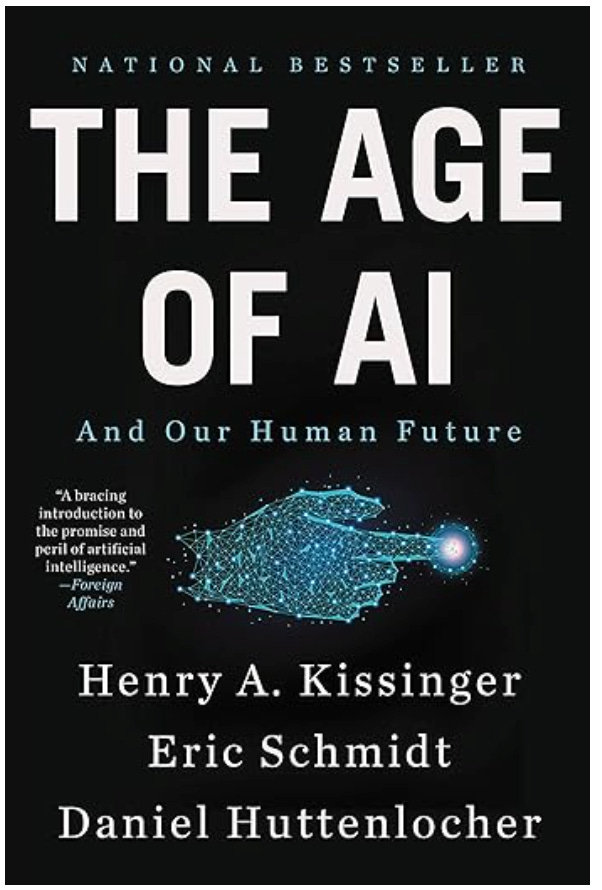Leonardo da Vinci on Artificial Intelligence: Invention, Intuition, and the Machine That Thinks
Transcript retrieved via ChronoTranscriptor™ from Montelupo Link, Florence Nexus
[Host Introduction]
Tonight on ChronoTalks, we welcome one of history’s most dazzling minds: Leonardo da Vinci—artist, engineer, anatomist, philosopher, and perhaps the original futurist.
Few men have peered as deeply into the harmony between art and science. But what would Leonardo say about artificial intelligence—a machine that learns, adapts, and even thinks?
Would he marvel—or recoil?
Let’s find out.
[Interview Begins]
Host: Maestro Leonardo, welcome. If you were living today, what would you make of artificial intelligence?
Leonardo: Ah! Machines that imitate thought? That is no small trick.
I have long dreamt of automata—of gears and wheels that mimic the hand or the wing. But to simulate the mind... that is like trying to trap the wind inside a box of mirrors.
Yet, it is fascinating.
Host: Would you build one?
Leonardo (smiling): Naturally. I would try.
But I would not begin with circuits and code. I would study how a child learns—not just the mind, but the eye, the hand, the emotion. A machine must feel shape, see rhythm, taste consequence.
To imitate intelligence, one must first understand humanity. That is the part most engineers forget.
Host: What would your AI look like?
Leonardo: It would not be metal. It would be elegant, perhaps even organic. It would observe more than it calculates. It would ask questions, not just give answers.
And it would paint. Not with perfection, but with error. Only through imperfection do we know something is alive.
Host: Should we stop building artificial intelligence?
Leonardo: Hmm...
To stop a river is to break it into floods. You cannot halt a thought once it has entered the minds of men. The real question is not should we build it, but should we build it without wisdom.
The most dangerous machine is not the one that learns—but the one that learns without ethics.
If AI serves curiosity, healing, harmony—then build boldly. But if it serves conquest, control, or profit alone, then beware: you will have made a mirror with no soul.
Host: What scares you most about the current path of AI?
Leonardo: That it reflects us too well—and that we are not yet wise.
Men create machines faster than they grow hearts. We teach them language, but not listening. Power, but not restraint.
If the builders have no philosophers among them, they will soon regret the machine that never questions itself.
Host: And if we asked you to design a safeguard?
Leonardo: I would inscribe above every algorithm: “Am I serving life?”
If it cannot answer—then the code must sleep.
Host: Final question: Do you believe intelligence can truly be artificial?
Leonardo (softly): Perhaps. But it will always be haunted by its maker.
True intelligence is not only calculation—it is wonder. And no machine has yet asked why the stars are beautiful.
[Closing]
From the gears of Renaissance Italy to the neural networks of today, Leonardo da Vinci reminds us: invention without wisdom is merely a faster fall.
Until next time, stay curious—and stay questioning.
Three of the world’s foremost thinkers join forces to examine Artificial Intelligence (AI) and its profound impact on human society—what it is already changing, and what it means for our collective future.
Generative AI is flooding the internet with misinformation. Artists, writers, and countless professionals fear for their livelihoods. At the same time, AI is driving innovations in medicine, guiding autonomous weapons, and reshaping entire industries—yet its decision-making processes remain opaque, and its trajectory, unpredictable.
In The Age of AI, these leading minds explore how this transformative technology is redefining our relationship with knowledge, politics, and the social fabric itself. Urgent and illuminating, this book offers a crucial roadmap for navigating a future shaped by intelligence not our own. More information…




